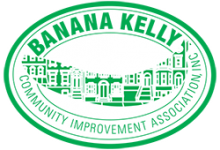By Eric Goldfischer
At the Urban Convergences conference this past weekend (sponsored by the Rosa Luxembourg NYC office and hosted by the New School), a group of academics, thinkers, activists, and students got together under the banner of “Where Theory Meets the Street.” The concept was that we would all talk about how theory informs practice, how in turn practice requires theory to deepen its engagement and impact; essentially, we were to discuss how to create praxis–that special meeting place between theory and practice, an often misused and misunderstood idea that, for me, defines the heart of community organizing as I know it.
Throughout the conversation, which included examples from the local struggles in NYC over the past decade to the much larger struggle against apartheid in South Africa, there was general consensus that the potential for the greatest success or transformation lies in praxis Paulo Freire defines a liberatory praxis as “the action and reflection of men and women upon their world in order to transform it.” For organizers, this means that we work alongside people in their struggle for liberation, and that our job is to facilitate a process of self-actualization and collective consciousness where those affected by oppression are actors in promoting their own liberation. Through this process, we are all teachers and learners in the same moment. But it also means that in order to truly create praxis, action requires theory behind it. The issue then becomes about from where the theory should emanate.
The key question and my biggest concern with approaching this struggle from academia is how broadly one understands theory, and therefore how creative organizers and activists can be in opening space for critical consciousness through the use of intellectually impressive, yet untested and inaccessible, theses. Friere, Myles Horton, and other thinkers of popular education stressed dialogue as its own method to create theory for praxis. Freire noted that “There is no true word that is not at the same time a praxis. Thus, to speak a true word is to transform the world.” Another way of saying this is that words are not just hollow means of self-expression without purpose. On the contrary, true words are our means for identifying problems, making connections, formulating collective consciousness, and defining appropriate action to address a source of injustice, oppression or other harm. Theory can be helpful, but it doesn’t need to be developed and indeed should not be exclusively developed in the academy and shared with the streets–rather, theory lives everywhere, and can be developed in intentional dialogue that allows people to ask “Why?” When bell hooks refers to theory as a “liberatory practice,” she doesn’t mean that academics will arrive to save organized movements with ideas; rather, she argues that “when our lived experience of theorizing is fundamentally linked to processes of self-recovery, of collective liberation, no gap exists between theory and practice.”
This, I think, is the fundamental struggle of the organizing that we’re currently undertaking: creating new forms of public space that allow people to begin grappling with the basic contradictions of life in a city that has become increasingly unaffordable and unlivable, but recognizing that unless this deliberation is undertaken on terms accessible and meaningful to those who will necessarily have to act on their own behalf, no action that follows can possibly be effective. By assisting actors to dialogue and define action as the by-product of that deliberation, we can engage in the dialogic process of action and reflection indispensable to effective political and cultural transformation. And while one activist suggested that “movement” has become jargon (with which I generally agree), praxis is dynamic and unpredictable–sharing with “movement” a quality of motion, but diverging through its non-teleological processes and willingness to exist in a non-linear form. Perhaps as we work together in collective “movement,” we can each develop our own praxis as a way to encourage the creation of new theory that reaches from the streets to the academy, rather than the other way around. And these efforts might themselves create academic theories–but by then, the substance, as well as any transformational change, will belong to the people.
